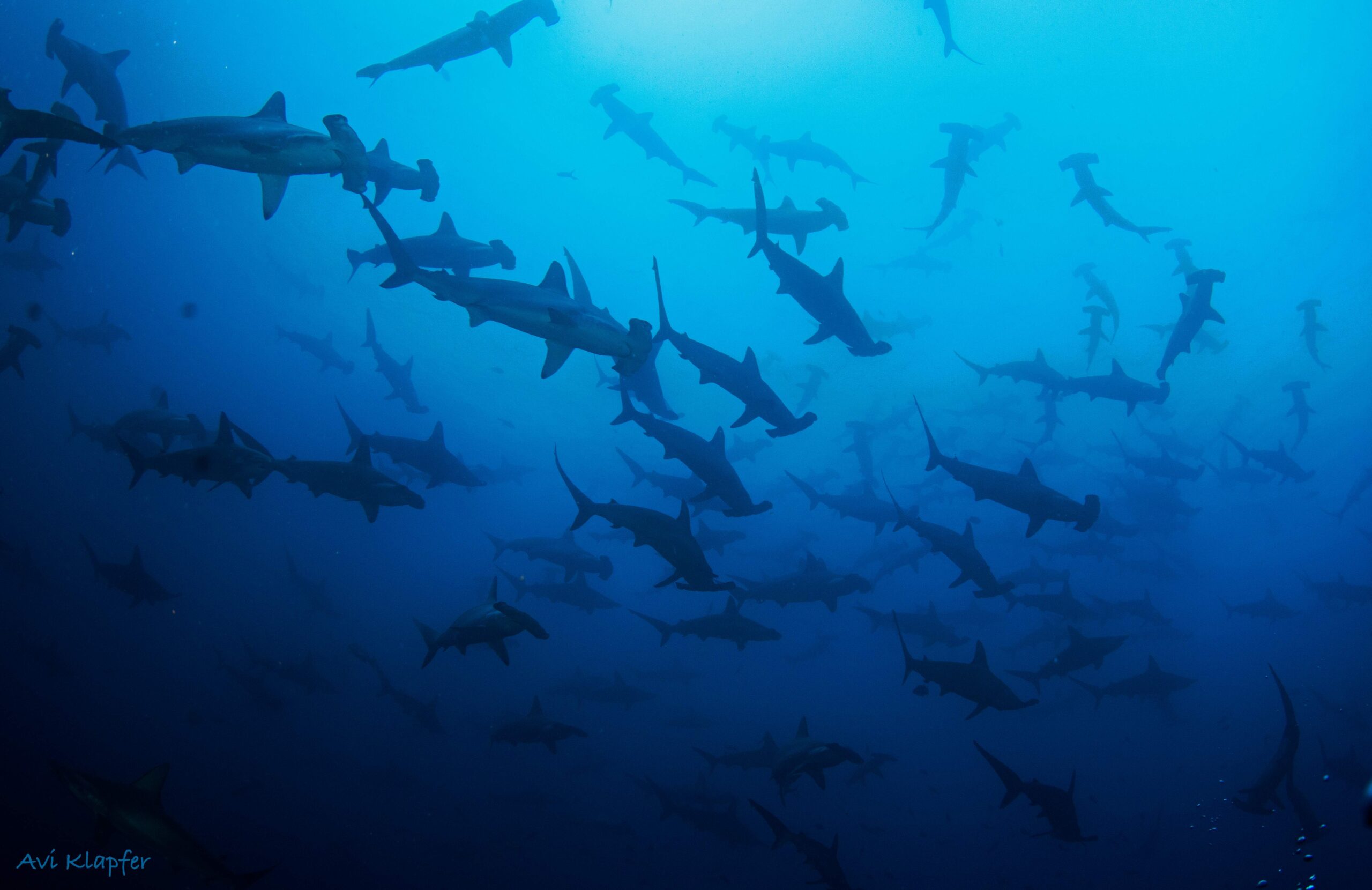
Scalloped hammerheads (Sphyrna lewini) swim off the coast of Cocos Island. Photo by Avi Klapfer.
Shark Week may have ended last week … but every week is shark week here at Turtle Island Restoration Network.
Sadly, shark populations are declining around the globe. These incredible, ancient animals play a vital role in marine ecosystems by keeping populations and habitats healthy and our oceans in balance.
We’re fighting for sharks by engaging in cutting edge research and citizen science to track highly migratory and endangered shark species in the Eastern Tropical Pacific to support development of the world’s first multi-national marine protected area.
In North America, we’re fighting for policy change to protect sharks from injury and death as bycatch in drift gillnets, pelagic longlines, and the cruel practice of finning.
Last week, many supporters like you asked us: “What can I do to save sharks?!”
Here are five ways you can help save sharks, each and every week, and protect our precious ocean ecosystems:
(1) Write your members of Congress and urge them to support a federal ban of drift gillnets in US waters. Congress re-introduced legislation this year that would phase out large-scale driftnets, a highly destructive fishery responsible for killing and maiming myriad endangered or threatened shark species every year. In just one decade, our study found 26,000 sharks were killed as drift gillnet bycatch. If you already emailed Congress via our action center, please take the next step and call your representatives to request a meeting and support these important bills!
(2) Make sustainable seafood choices, or try to cut seafood from your diet altogether (highly recommended!). Tens of millions of sharks are caught as bycatch in industrial fisheries every year, making sharks collateral damage in the seafood you consume. If you do eat seafood, check out our Got Mercury? calculator to gauge just how much mercury is in the seafood you eat.
(3) Help clean up your local beaches and watersheds to tackle the crisis of plastic pollution. Plastic is expected to outweigh all the fish in our oceans by 2050, and plastic pollution has harmful and deadly effects on marine ecosystems and wildlife. International Coastal Clean-Up Day is coming up on September 21 – sign up for a clean-up near you, and take the pledge against single-use plastic straws.
(4) Participate in hands-on conservation research and citizen science to monitor endangered sharks in the Eastern Tropical Pacific by joining us on our Cocos Island Research Expeditions. By tracking highly migratory species that travel between Cocos and Galapagos Islands, we are working towards development of a marine protected area “Swimway” between two nations whose seas are among the most biologically diverse in the world. Take the diving trip of a lifetime and help with critical conservation research to protect endangered sharks and sea turtles.
(5) Support our programs to help protect sharks, whales, sea turtles and other marine wildlife by becoming a monthly donor. Monthly donors are the lifeblood of our organization, and help sustain our critical programs to protect marine wildlife and ecosystems in California, the Gulf of Mexico, Hawaii, the Eastern Tropical Pacific and beyond.
There are fifty two shark weeks each year. Let’s keep fighting for sharks each and every week – from personal lifestyle changes and supporting shark-friendly policy change, to engaging in citizen science, activism and supporting orgs that are on the ground (and in the water) protecting these incredible creatures.




